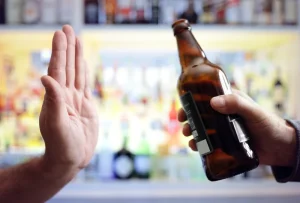
On average, members see a 30% reduction in alcohol consumption in 3 months, leading to improved sleep, diet, and overall wellbeing. Dopamine plays an essential role in mood and neurodevelopmental disorders, such as anxiety, depression, and attention deficit hyperactivity disorder (ADHD). Since alcohol disrupts dopamine production and usage, drinking can lead to either an exacerbation in symptoms or the development of mood disorders. Drinking heavily can also impair your cognition by affecting your diet and vitamin absorption. Some alcoholics become deficient in an enzyme that prevents them from metabolizing vitamin B1 (thiamine), or they simply don’t eat a nutrient-rich diet, causing malnutrition.
Alcohol withdrawal brain fog
Alcohol can act as a social lubricant and provide “liquid courage” for people who are anxious or shy, but do not rely on it too much. You may want to avoid or limit alcohol if it allows you to engage in behaviors you would not normally engage in. C60 Power’s Carbon 60 in Organic Avocado alcohol brain fog Oil is made with pure, sublimated Carbon 60 (never exposed to solvents). Carbon 60 is an antioxidant that may help reduce oxidative stress in the body. One 2019 study showed that reaching for a cell phone did not allow the brain to recharge as effectively as other types of relaxation.
Long-term effects
This feel-good chemical does a lot more than just make you feel rewarded. The amount you produce affects how you think, work, and even sleep. Our brains are wired to want a reward – and that wave of euphoria you feel when you take that first bite of your brownie or sip of wine is dopamine surging through you. Addiction and substance use disorder affects over 17% of the American population.
- “Brain fog” is thought to originate from the term “brain fag,” a phrase coined in 1850 by British physician James Tunstall, according to research.
- Cognition is the process of your brain working to understand or learn something.
- Heavy drinking for females is eight or more drinks per week and 15 or more drinks per week for males.
- But that’s not all — a 2021 study suggests it can also distract us from upsetting thoughts and a 2017 study notes that it can aid in emotional regulation after a stressful event.
- From 2 months to 5 years of abstinence people makeincredible cognitive gains and get very close to a full restoration of normal functioning.
Can alcohol cause permanent cognitive impairment?
The most common symptoms of dementia include memory loss, problems with language, and difficulty with planning and decision-making. This is due to the fact that alcohol addiction can damage the brain over time. There are a number of different supplements that can help improve cognitive function and brain health. Another way to help improve alcohol fog or any kind of brain fog is by taking brain health supplements. This is due to the fact that chronic stress can lead to adrenal exhaustion, which causes cognitive dysfunction symptoms such as forgetfulness, lack of attention, and irritability. Therefore, it is crucial to drink plenty of water when you are trying to relieve the symptoms of alcohol fog or brain fog in general.
See how you’re feeling without drink
Set aside 30 minutes before retiring to engage in a wind-down routine, such as taking a warm bath or meditating. If possible, be consistent with the time you go to bed and what time you get up in the morning. This will cause your brain to automatically begin to wind down near bedtime. However, even switching up the way you go about familiar daily tasks will challenge your brain and help pull you out of autopilot. For instance, try brushing your teeth with the opposite hand for a week, read a book that’s not your go-to genre, or take a different route to work. One of the best things about getting sober is that there’s a newfound clarity of thought.
Manage Your Stress

But I’d get belligerent after a few drinks so it was like a red rag to a bull and he didn’t push it. Or my younger daughter Georgia, who still lived at home then, would say, “do you have to, Mum? I’ve been with my husband for 35 years, though we only tied the knot in 2016. Dene is a kind and lovely man, not the type to criticise, but he’d raise an eyebrow as I uncorked yet again, “are you sure you want to drink tonight? I never calculated exactly how many units I was consuming, I was aware it would be well over the 14 recommended a week for women, and it would have scared me, so I pushed it to the back of my mind. It’s an ugly word laden with such stigma, one I reserve for the people who were pouring Bailey’s on their cornflakes.
Brain Fog Symptoms

These daily cognitive needs and memory are so sensitive to alcohol – just imagine party binge drinkers in movies; when they have too much they can’t even remember the night before. A little too much is going to have an impact on your average workday, too. Read on to find out how exactly alcohol changes your dopamine levels, and what you can do to focus on healthier rewards and ultimately become more mindful of your drinking. Warren is a Licensed Master Social Worker, who specializes in substance abuse and mental health treatment. Clinically, Warren has developed a therapeutic skillset that utilizes a strengths-based perspective, Twelve Step philosophies, Cognitive Behavioral Therapy and Motivational Interviewing.

Four foods that should come with a smoking-style health warning
- Brain fog, or mental fog, is often described as feeling mentally drained and unable to concentrate.
- Many people with an alcohol addiction are malnourished, and it is possible that your body does not have the nutrients it needs for proper brain functioning.
- The affected brain regions controlled skills like attention, language, memory, and reasoning.
- What you eat significantly affects how you feel and your overall brain health.
- You can promote healthy changes in the brains and behaviors of patients with AUD by encouraging them to take a long-term, science-based approach to getting better.
- Plus, we may not think to attribute our mood swings to perimenopause if they’re something we go through after a few glasses of wine.
So why is it so hard to know whether alcohol is good or bad for us—especially for our brains? In this post, we’ll explore the current science and some practical ideas on how to approach the topic. It is vital to get at least seven to eight hours of sleep per night. This organ is responsible for filtering toxins from the blood and converting nutrients into energy. Following a list of tips isn’t easy, especially if you try to do them all at once.
